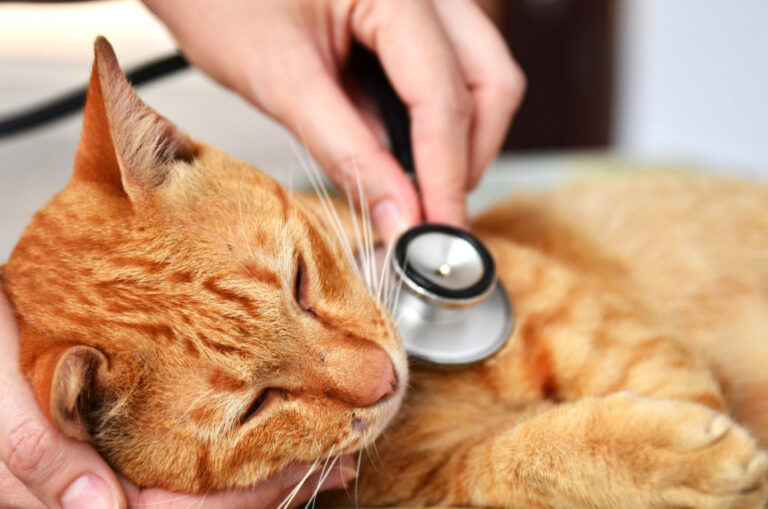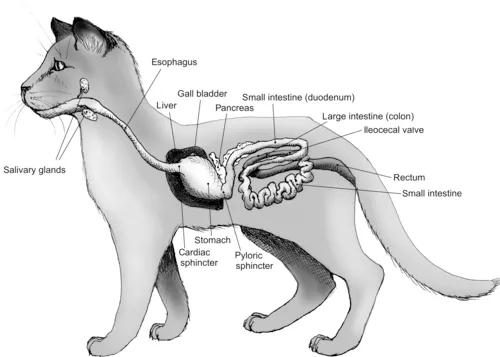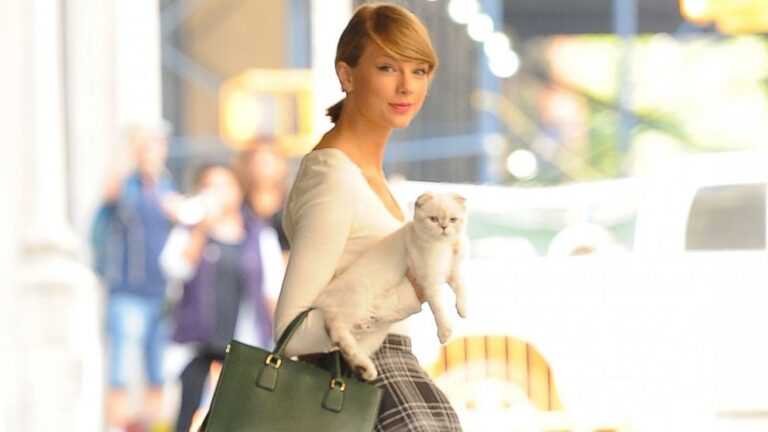Proactive care for common feline issues
Understanding Common Feline Health Concerns: A Guide for Proactive Care
Understanding Common Feline Health Concerns: A Guide for Proactive Care
Cats are wonderful companions, but just like any other living beings, they are prone to certain health issues. Being aware of these common feline health concerns is crucial for providing proactive care to our furry friends. One commonly encountered issue is urinary tract problems. Cats, especially males, can develop blockages that hinder their ability to urinate. This can lead to discomfort, pain, and even life-threatening consequences if not addressed promptly. Keeping an eye out for symptoms such as frequent trips to the litter box, blood in urine, or straining while urinating can help us catch this concern early on.
Another common health concern among cats is dental disease. Just like humans, our feline friends can suffer from tooth decay, gum inflammation, and other dental issues. Neglecting their oral health can lead to severe consequences, including loss of teeth, painful infections, and even heart and kidney problems. As responsible cat owners, it is essential to pay attention to signs such as bad breath, difficulty eating, and drooling. Regular dental check-ups and providing appropriate dental care, such as brushing their teeth or offering dental treats, can go a long way in maintaining our cat’s dental health and overall well-being.
Identifying Early Warning Signs of Feline Health Issues
Cats are masters at disguising their pain and discomfort, making it imperative for pet owners to be vigilant in identifying early warning signs of potential health issues. One of the most common indications that something may be amiss is a change in behavior. If your once energetic feline suddenly becomes withdrawn or lethargic, it could be a sign of an underlying health problem. Additionally, pay close attention to any changes in eating and drinking habits. Sudden weight loss, loss of appetite, excessive thirst, or frequent trips to the litter box could all be red flags for health concerns.
Another important aspect to consider is your cat’s coat and skin. Any unexplained changes such as hair loss, dry or flaky skin, or the presence of bald patches could be indicative of an underlying health issue. Additionally, be on the lookout for any unusual swelling, lumps, or bumps on your cat’s body. These could be signs of tumors, abscesses, or other abnormalities that require immediate veterinary attention. By staying vigilant and attuned to these early warning signs, you can help ensure prompt diagnosis and treatment, ultimately improving your feline companion’s overall well-being.
Importance of Regular Veterinary Check-ups for Cats
Regular veterinary check-ups are essential for maintaining the overall health and wellbeing of your feline companion. Visiting your veterinarian on a routine basis allows for early detection and prevention of potential health problems, ensuring prompt treatment if needed. During these check-ups, the veterinarian will assess your cat’s physical condition, monitor vital signs, and perform various tests to identify any underlying issues. They will also update your cat’s vaccinations and provide you with invaluable advice on nutrition, behavior, and general care.
As cats age, they become more prone to developing certain health concerns. Regular check-ups allow your veterinarian to closely monitor any changes in your cat’s overall health and catch diseases or infections early on. Additionally, these visits provide an opportunity for you to discuss any concerns or questions you may have with a trained professional. Even if your cat appears healthy, it is recommended to adhere to a regular check-up schedule to ensure their ongoing wellness. Remember, prevention is key when it comes to your furry friend’s wellbeing, and regular veterinary check-ups play a vital role in achieving that goal.
Preventive Measures for Dental Health in Felines
As responsible cat owners, it is essential to prioritize our feline companions’ dental health. A significant number of cats suffer from dental problems, such as periodontal disease, tooth decay, and gum infections. However, with some preventive measures, we can help maintain the overall oral health of our feline friends.
Regular brushing is crucial for keeping your cat’s teeth and gums healthy. Choose a toothbrush and toothpaste specifically designed for feline use, as human toothpaste can be toxic for cats. Aim to brush your cat’s teeth at least two to three times a week to remove plaque and prevent tartar buildup. If your cat isn’t comfortable with brushing, start slowly and gradually increase the duration of each session. Additionally, providing dental treats or toys that promote chewing and stimulate saliva production can aid in decreasing the risk of dental disease in cats. These preventive measures can go a long way in ensuring the well-being of your feline’s dental health.
Proper Nutrition and Diet for Maintaining Feline Wellness
Proper nutrition and diet play a vital role in maintaining the overall wellness of our feline companions. Feeding your cat the right type and amount of food is essential for their health and longevity. Cats are obligate carnivores, which means their bodies are designed to thrive on a diet primarily composed of meat.
When it comes to selecting food for your cat, opt for high-quality commercial cat foods that provide a balanced and complete diet. Look for labels that state the food meets the standards set by organizations such as the Association of American Feed Control Officials (AAFCO). These standards ensure that the food contains all the necessary nutrients your cat needs to thrive.
Additionally, it is important to consider your cat’s age, health condition, and activity level when determining their nutritional needs. Kittens, adult cats, and senior cats all have unique dietary requirements, so it is advisable to consult with your veterinarian to choose the appropriate food for your feline friend.
Remember that a healthy diet not only supports the physical well-being of your cat but also contributes to their overall vitality. Ensuring their diet consists of high-quality ingredients and meets their specific nutritional needs will go a long way in keeping your feline companion happy and healthy.
Creating an Enriching Environment for Your Feline Companion
A happy and healthy feline companion requires more than just food and shelter. Creating an enriching environment is essential for their overall well-being. One of the first steps in providing an enriching environment is to ensure that your cat has a designated space of their own. This can be a cozy bed or a scratching post where they can retreat to whenever they desire some solitude. Having their own territory allows them to feel secure and reduces stress.
In addition to a designated space, it is important to offer various forms of stimulation. Cats are natural hunters and providing them with interactive toys or puzzle feeders can help satisfy their instinctual needs. These toys not only engage your cat’s mind but also help to keep them physically active. Another way to enrich the environment is by introducing vertical spaces such as cat trees or shelves. Cats love to climb and explore, and these structures provide them with opportunities to display their natural agility. By incorporating these elements into your cat’s environment, you can ensure they have a stimulating and fulfilling life.
The Role of Exercise in Promoting Feline Health
Cats, like humans, need regular exercise to maintain good health and overall wellbeing. Exercise helps to keep them physically fit, mentally stimulated, and emotionally balanced. A sedentary lifestyle can lead to weight gain, muscle loss, and a higher risk of developing health problems such as diabetes or arthritis. It is essential for cat owners to provide appropriate exercise opportunities for their feline companions to ensure their optimal health.
Encouraging exercise in cats doesn’t have to be complicated. Simple activities such as interactive play sessions using toys or laser pointers can help get them moving. Cats have a natural instinct to chase and capture prey, so engaging in playtime activities that simulate hunting can be highly beneficial. Additionally, providing structures like scratching posts, climbing trees, or perches can encourage cats to climb and explore, promoting exercise and environmental enrichment. Regular exercise not only keeps cats physically active but also helps strengthen the bond between cat and owner.
Grooming Tips for a Healthy and Happy Cat
Regular grooming is essential for maintaining the health and happiness of your feline companion. Cats are known for their cleanliness, but they still require some assistance in keeping their coats in tip-top condition. Brushing your cat regularly helps to remove loose hair and prevents matting, which can be uncomfortable for them. It also stimulates their skin and improves blood circulation, promoting a healthy and shiny coat. Choose a brush or comb specifically designed for cats, and gently work through their fur, paying attention to areas that tend to tangle, such as behind the ears and under the belly.
In addition to brushing, regular nail trimming is important for your cat’s well-being. Long nails not only cause discomfort, but they can also snag on fabrics or furniture and result in injury. Use pet-specific nail clippers and be extra cautious not to cut too close to the quick, which is the sensitive area of the nail. If your cat is not used to getting their nails trimmed, start slowly and reward them with treats and praise to make the experience more positive. Remember to check their ears regularly for any signs of infection and gently clean them with a veterinarian-approved ear cleaner. By incorporating grooming into your cat’s routine, you not only help them to look their best but also contribute to their overall health and happiness.
What are some common feline health concerns that owners should be aware of?
Understanding Common Feline Health Concerns: A Guide for Proactive Care provides information on common health concerns such as urinary tract infections, dental issues, obesity, and parasites.
How can I identify early warning signs of health issues in my cat?
The article “Identifying Early Warning Signs of Feline Health Issues” offers a comprehensive guide on recognizing signs like changes in appetite, litter box habits, behavior, and physical appearance that may indicate underlying health problems.
Why are regular veterinary check-ups important for cats?
“Importance of Regular Veterinary Check-ups for Cats” highlights the significance of routine check-ups in detecting and preventing potential health issues, as well as ensuring your cat’s overall well-being.
What preventive measures can I take for my cat’s dental health?
The article “Preventive Measures for Dental Health in Felines” provides tips on maintaining your cat’s oral hygiene, including regular teeth brushing, dental diets, and professional cleanings.
What should I feed my cat to maintain its wellness?
“Proper Nutrition and Diet for Maintaining Feline Wellness” offers guidance on providing a balanced diet tailored to your cat’s age, breed, and health condition.
How can I create an enriching environment for my cat?
The article “Creating an Enriching Environment for Your Feline Companion” provides tips on creating a stimulating environment with toys, scratching posts, and perches to keep your cat mentally and physically engaged.
How does exercise promote feline health?
“The Role of Exercise in Promoting Feline Health” explains the benefits of regular physical activity in maintaining a healthy weight, preventing obesity-related issues, and promoting mental stimulation for your cat.
What are some grooming tips to keep my cat healthy and happy?
The article “Grooming Tips for a Healthy and Happy Cat” offers advice on grooming techniques, such as brushing, bathing, nail trimming, and ear cleaning, to maintain your cat’s hygiene and overall well-being.







